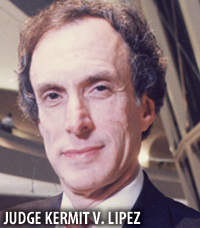 A pharmaceutical company should not have been awarded summary judgment on an employee’s claim that he was denied a promotion upon returning from military duty in Iraq, the 1st U.S. Circuit Court of Appeals has ruled.
A pharmaceutical company should not have been awarded summary judgment on an employee’s claim that he was denied a promotion upon returning from military duty in Iraq, the 1st U.S. Circuit Court of Appeals has ruled.
The employee argued that the promotion denial was in violation of the Uniformed Services Employment and Reemployment Rights Act, or USERRA. A federal judge had found in favor of the company because the position sought by the employee was not an “automatic promotion” and instead involved employer discretion.
The 1st Circuit reversed.
“[T]he appropriate inquiry in determining the proper reemployment position for a returning servicemember is not whether an advancement or promotion was automatic, but rather whether it was reasonably certain that the returning servicemember would have attained the higher position but for his absence due to military service,” Judge Kermit V. Lipez wrote for the unanimous court.
The 20-page decision is Rivera-Meléndez v. Pfizer Pharmaceuticals, LLC.
José L. Barrios-Ramos of Puerto Rico represented the employee. The company was defended by Pedro J. Torres-Díaz of Miami.
Tour of duty
Plaintiff Luis Rivera-Meléndez began working at defendant Pfizer’s pharmaceutical manufacturing facility in 1994. Initially employed as a chemical operator trainee, the plaintiff received several promotions, including one in 2004 to active pharmaceutical ingredient (API) group leader.
A member of the U.S. Naval Reserve, the plaintiff received notice in 2008 that he was being called to active duty in Iraq.
In February 2009, the defendant restructured its API department. As part of that restructuring, the API group leader position held by the plaintiff was eliminated and replaced with two separate classifications: API team leader, for which seven job openings would be posted, and API service coordinator. The API team leader positions were posted in March 2009, seven months before the plaintiff returned to the company.
Upon being discharged from active military service, the plaintiff was told by the API manager that he was reinstated as an API group leader. However, because the API group leader position had been effectively eliminated by the time he returned to Pfizer, the plaintiff was assigned to “special tasks” under the supervision of the API manager. Although his salary and benefits were not altered, the plaintiff had reduced job responsibilities while assigned to the “special tasks” role.
In 2010, the plaintiff was appointed to the API service coordinator position after the creation of the position had been officially approved by Pfizer. The plaintiff later stated in his deposition that he no longer had supervisory duties in his new position. He also testified that he would have liked the opportunity to apply for the API team leader position and that he felt he was qualified for the job.
‘Escalator’ principle
Under USERRA, a service member whose period of service exceeded 90 days is to be re-employed “in the position of employment in which [he] would have been employed if the continuous employment of such person with the employer had not been interrupted by such service, or a position of like seniority, status and pay, the duties of which the person is qualified to perform.” 38 U.S.C. §4313(a)(2)(A) (emphasis added).
That position, Lipez said, is termed the “escalator position.”
The U.S. Department of Labor enacted regulations stating that, as a general rule, “the employee is entitled to reemployment in the job position that he or she would have attained with reasonable certainty if not for the absence due to uniformed service.”
The DOL declined to alter the regulations to indicate that discretionary/non-automatic promotions would not be subject to the escalator principle and the reasonable certainty test.
“This case requires us to determine whether the ‘escalator principle’ and ‘reasonable certainty’ test governing reinstatement claims under the Uniformed Services Employment and Reemployment Rights Act of 1994 (‘USERRA’) apply to non-automatic, ‘discretionary’ promotions,” Lipez said.
Lipez noted that the trial judge held that the plaintiff’s attempt to invoke the escalator principle was improper because “[a]n escalator position is a promotion that is based solely on employee seniority … [and] does not include an appointment to a position that is not automatic, but instead depends on the employee’s fitness and ability and the employer’s exercise of discretion.”
The judge relied primarily on the U.S. Supreme Court’s 1958 decision in McKinney v. Missouri-Kansas-Texas Railroad Co.
The 1st Circuit faulted the judge for not taking into consideration the 1964 Supreme Court case of Tilton v. Missouri Pacific Railroad Co.
“Read together, McKinney and Tilton suggest that the appropriate inquiry in determining the proper reemployment position for a returning servicemember is not whether an advancement or promotion was automatic, but rather whether it was reasonably certain that the returning servicemember would have attained the higher position but for his absence due to military service,” Lipez said.
The DOL “has certainly adopted this construction of the regulations and the relevant precedents,” he added. “We accord this interpretation substantial deference.”
The trial judge’s analysis of the plaintiff’s claim to the API team leader position “was premised on its fundamental misapprehension of the correct legal standard, which in turn compromised its view of the evidence,” Lipez wrote, ordering a remand so that the trial judge could decide in the first instance if the summary judgment record reveals genuine issues of material fact on the question of whether it is reasonably certain that the plaintiff would have been promoted to the API team leader post if his work at Pfizer had not been interrupted by military service.
 New England Biz Law Update
New England Biz Law Update
